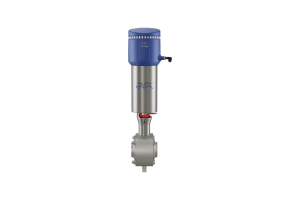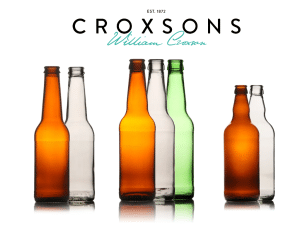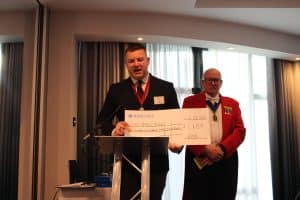The use of a density meter is commonplace throughout the food & beverage industry; from raw material testing to line-side control of beverage dilution, fermentation and for declaring the alcoholic strength of finished beer, wine, cider and spirits.
Density is a ratio of mass per volume. A hydrometer, pycnometer or a digital density meter can be used to measure the density of liquids. However, digital density meters are often preferred due to the extremely high precision and workflow efficiencies they afford to resource-stretched laboratories.
For many, product formulations within food and beverage applications are specified in pure density units (g/cm3) however, some formulations may cite alternatives. This is achieved by referring to internationally recognized tables, or scales, such as Brix (sucrose w/w) in the sugar processing and soft drinks industries or importantly, either (1) ethanol % by weight (ABW, w/w), or (2) ethanol % by volume (ABV, % w/v) within the alcohol beverage sector.
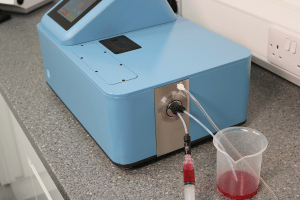 Xylem’s new Bellingham + Stanley brand DSG Series Density Meters cater for all manner of methods and scales applicable to food and beverage applications. One-touch configuration of measurement scale, temperature and response time is simple; meaning the measurement of Wort Specific Gravity prior to a brew, spirit strength (with or without distillation) for the cutting of spirits and even measuring the final alcoholic strength (ABV) for Customs declaration makes the DSG Density Meter ideal for every user.
Xylem’s new Bellingham + Stanley brand DSG Series Density Meters cater for all manner of methods and scales applicable to food and beverage applications. One-touch configuration of measurement scale, temperature and response time is simple; meaning the measurement of Wort Specific Gravity prior to a brew, spirit strength (with or without distillation) for the cutting of spirits and even measuring the final alcoholic strength (ABV) for Customs declaration makes the DSG Density Meter ideal for every user.
Comprised of two instruments with varying measurement accuracy, the DSG Series offers flexibility for the laboratory. The DSG40 has a density measurement accuracy to 4 decimal places, whilst the DSG50 offers a higher specification resolving to 5 decimal points (g/cm3).
The new instruments follow the same design philosophy of Bellingham + Stanley’s world renowned RFM refractometers and ADP polarimeters. Simple. Reliable. Precise.
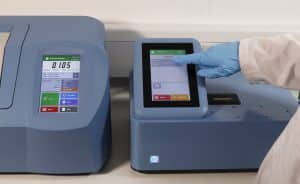 Users familiar with Bellingham + Stanley products will recognise how the familiar, bright, 7” colour-coded touchscreen makes reading and configuration simple, even when wearing PPE gloves. Those new to the system will be impressed by the ease of use, whether that be during configuration or taking readings.
Users familiar with Bellingham + Stanley products will recognise how the familiar, bright, 7” colour-coded touchscreen makes reading and configuration simple, even when wearing PPE gloves. Those new to the system will be impressed by the ease of use, whether that be during configuration or taking readings.
Peltier temperature control is used to ensure stabilisation before analysis, whilst a powerful internal air pump, humidity sensor, and integrated desiccant means the DSG Series has no need for external devices for venting after cleaning, so precious bench space isn’t taken up by needless peripherals.
Extensive reporting and security features within the instrument’s user-friendly menu ensures auditability and data integrity when choosing to incorporate the instrument into any laboratory operating in accordance with GLP or other international standards.
For those brewers or cider makers not quite ready to move to laboratory-grade digital instrumentation, Bellingham + Stanley offer a simple Brew Kit comprising of a tri-scale OPTi® Digital Handheld Refractometer (Wort SG, Brix & Zeiss) and a specifically calibrated hydrometer and jar. Having a typical accuracy of ±0.2 % ABV, this kit is ideal for monitoring fermentation processes as well as for Customs declaration of cider.
Contact Bellingham + Stanley for more information about the DSG Series of density meters or visit www.refractometershop.com to learn about their Brew Kit.
Density Meters from Bellingham + Stanley (bellinghamandstanley.com)


